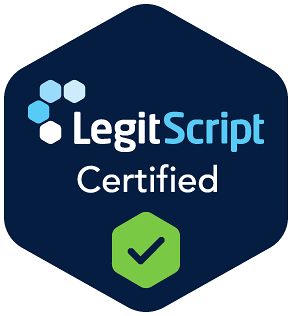
FasTreat’s Guide To ADHD
What Is ADHD
ADHD, or Attention-Deficit/Hyperactivity Disorder, is a common neurodevelopmental condition characterized by symptoms such as difficulty maintaining attention, hyperactivity, and impulsive behavior. It’s important to emphasize that ADHD is not a reflection of laziness or lack of ability—it’s a medical condition caused by differences in brain function.
Helping patients understand these traits reduces misconceptions and provides clarity about their experiences.
Core Symptoms:
•Inattention:Difficulty focusing, staying organized and completing tasks.
•Hyperactivity: Excessive fidgeting, restlessness and constant movement.
•Impulsivity: Acting without thinking, interrupting and struggling to wait.
Helping patients understand these traits reduces misconceptions and provides clarity about their experiences.
How Does ADHD Impact Life?
ADHD can present both challenges and strengths, and understanding this dual nature is key for patients.
Recognizing both sides helps patients embrace their strengths and work on areas of improvement.
Challenges:
•Difficulty in managing time, completing tasks, or staying organized.
•Struggles in academic, professional, or social settings due to inattention or impulsivity.
•Emotional regulation issues, such as frustration or mood swings.
Strengths:
•Enhanced creativity and out-of-the-box thinking.
•Strong ability to hyperfocus on topics of interest.
•High energy levels that can be channeled productively.
Recognizing both sides helps patients embrace their strengths and work on areas of improvement.
ADHD Can Be Managed
ADHD is manageable, and with the right strategies, individuals can lead fulfilling and successful lives.
Diagnosis and Treatment: Seek a professional evaluation to confirm ADHD and explore treatments like medication and behavioral therapy.
Lifestyle Adjustments: Implement structured routines, break tasks into smaller steps, and prioritize time management.
Building Support Systems: Build a network of supportive professionals, friends, and family. Joining ADHD-focused communities can also help.
Seeking help is a strength, and ADHD can be managed with the right tools.
Focusing on these areas helps ADHD patients feel empowered to take confident next steps.
Diagnosis and Treatment: Seek a professional evaluation to confirm ADHD and explore treatments like medication and behavioral therapy.
Lifestyle Adjustments: Implement structured routines, break tasks into smaller steps, and prioritize time management.
Building Support Systems: Build a network of supportive professionals, friends, and family. Joining ADHD-focused communities can also help.
Seeking help is a strength, and ADHD can be managed with the right tools.
Focusing on these areas helps ADHD patients feel empowered to take confident next steps.



